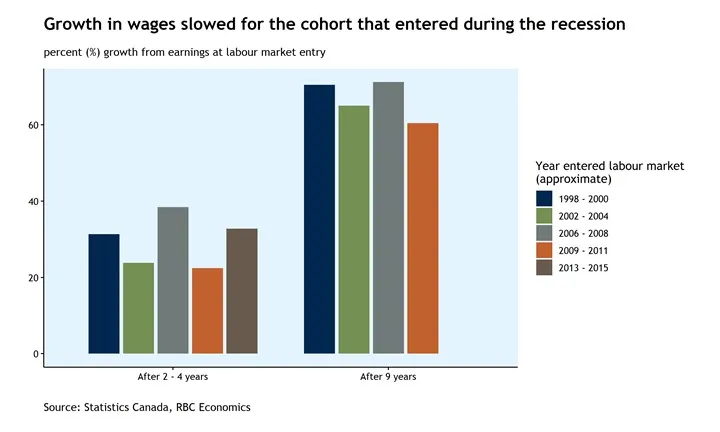Rebuilding a Resilient and Inclusive Economy: Equitable Growth 2021 Conference
The coronavirus pandemic and the resulting economic and societal shock have exposed underlying systemic fragility driven by economic inequalities and structural racism. However, more expansive, transformative, and equitable economic policies have contributed to a faster recovery compared to the years following the Great Recession of 2007–2009. Nevertheless, as the coronavirus pandemic resurges, many of the underlying structural fragilities exacerbated by the recession and ongoing consequences of climate change remain exposed.
The Washington Center for Equitable Growth aims to address these economic policy challenges and rebuild a more resilient and inclusive U.S. economy and society. This objective will be the focus of the virtual policy conference, “Equitable Growth 2021: Evidence for a Stronger Economic Future,” taking place on Monday and Tuesday, September 20–21.
During the two-day conference, policymakers, academics, advocates, and thought leaders will come together to examine the progress made in building a resilient and inclusive economy and discuss the future needs. The conference will highlight the importance of racial justice, climate resilience, access to care and family economic security, financial stability, and rebalancing power in achieving a stronger economic future that benefits all.
Featured Panelists and Moderators
The conference will feature prominent speakers who will participate in fireside chats, remarks, and panel sessions. Some of the notable panelists include:
- Olivier Blanchard: The Robert Solow professor emeritus at the Massachusetts Institute of Technology and the Fred Bergsten senior fellow at the Peterson Institute for International Economics. Blanchard has worked extensively on issues such as monetary and fiscal policy, labor markets, and the global financial crisis.
- Dania Francis: An assistant professor of economics at the University of Massachusetts Boston. Francis specializes in studying the structural causes behind racial and socioeconomic achievement divides.
- Brenda Mallory: The chair of the White House Council on Environmental Quality. Mallory has worked on advancing environmental protections for low-income and communities of color.
- New York Attorney General Letitia James: A leading figure in tackling anticompetitive behavior in the technology industry.
- Antoine Prince Albert III: The government affairs policy counsel at Public Knowledge, a tech-focused think tank.
- Ryan Gerety: A senior advisor to United for Respect, an advocacy organization for retail workers.
- Fiona Scott Morton: The Theodore Nierenberg professor of economics at the Yale University School of Management. Scott Morton is renowned for her research on competition in pricing, entry, and product differentiation.
- Kristen Broady: A fellow at the Brookings Institution’s Metropolitan Policy Program and professor of financial economics. Broady’s research focuses on mortgage foreclosure risk and the impact of economic shocks on marginalized communities.
- J.W. Mason: An associate professor at John Jay College, City University of New York, and fellow at the Roosevelt Institute. Mason has written extensively on government debt and household debt.
- Atif Mian: The John H. Laporte, Jr. Class of 1967 professor of economics, public policy, and finance at Princeton University. Mian has proposed a theory of indebted demand and has researched the role of household debt in economic crises.
- Hilary Hoynes: A professor of public policy and economics at the University of California, Berkeley. Hoynes specializes in research on social infrastructure programs and government tax and transfer policies.
- Shilpa Phadke: Special assistant to the president and deputy director at the White House Gender Policy Council. Phadke focuses on gender equity and equality in economic security.
- William E. Spriggs: The chief economist at AFL-CIO and a professor at Howard University. Spriggs has written about Unemployment Insurance and its impact on workers, particularly those in low-wage sectors.
- Jessie Ulibarri: The co-executive director of the State Innovation Exchange and a former Colorado state senator. Ulibarri has led efforts to expand paid sick leave and paid family and medical leave in Colorado.
The panel sessions will be moderated by experts such as Michelle Holder, president and CEO of the Washington Center for Equitable Growth, Lydia DePillis from ProPublica, Jeanna Smialek from The New York Times, and Alix Gould-Werth, director of family economic security policy at the Washington Center for Equitable Growth.
Conference Agenda
Here is a preview of the conference’s second day and the concurrent panel sessions:
Concurrent sessions: Block 1
Envisioning a new economic future: What’s next?
Date: Tuesday, September 21
Time: 2:05 p.m. – 2:50 p.m.
This panel will discuss the opportunity to build a new economic future centered on racial equity and climate resilience. Panelists will explore how to leverage deficits to invest in a green future and ensure that historically excluded communities can benefit from these investments.
Rebalancing Big Tech’s grip on the economy
Date: Tuesday, September 21
Time: 2:05 p.m. – 2:50 p.m.
This panel will address the need for sound policy and advocacy strategies to manage the integration of technology in the economy. Panelists will discuss how to ensure fair distribution of gains from technological advancements and promote competition and economic growth.
Concurrent sessions: Block 2
Boosting aggregate demand amid decreased debt
Date: Tuesday, September 21
Time: 2:55 p.m. – 3:38 p.m.
This session will delve into the impact of household debt on aggregate demand and macroeconomic stability. Panelists will discuss the opportunities to create a more stable future for families and the economy.
Social infrastructure as an engine for equitable growth
Date: Tuesday, September 21
Time: 2:55 p.m. – 3:38 p.m.
This panel will explore the economic impacts of social infrastructure investments, such as child care and paid leave. Panelists will discuss the policy levers that can lead to increased labor force participation and productivity.
To learn more about the conference agenda and register for the event, please visit the event website
SDGs, Targets, and Indicators
SDGs, Targets, and Indicators
- SDG 1: No Poverty
- Target 1.2: By 2030, reduce at least by half the proportion of men, women, and children of all ages living in poverty in all its dimensions according to national definitions.
- Indicator 1.2.1: Proportion of population living below the international poverty line, by sex, age, employment status, and geographical location (urban/rural).
- SDG 5: Gender Equality
- Target 5.1: End all forms of discrimination against all women and girls everywhere.
- Indicator 5.1.1: Whether or not legal frameworks are in place to promote, enforce and monitor equality and non-discrimination on the basis of sex.
- SDG 8: Decent Work and Economic Growth
- Target 8.5: By 2030, achieve full and productive employment and decent work for all women and men, including for young people and persons with disabilities, and equal pay for work of equal value.
- Indicator 8.5.1: Average hourly earnings of female and male employees, by occupation, age group and persons with disabilities.
- SDG 10: Reduced Inequalities
- Target 10.2: By 2030, empower and promote the social, economic and political inclusion of all, irrespective of age, sex, disability, race, ethnicity, origin, religion or economic or other status.
- Indicator 10.2.1: Proportion of people living below 50 percent of median income, by age, sex and persons with disabilities.
- SDG 13: Climate Action
- Target 13.1: Strengthen resilience and adaptive capacity to climate-related hazards and natural disasters in all countries.
- Indicator 13.1.1: Number of deaths, missing persons and directly affected persons attributed to disasters per 100,000 population.
Analysis
1. Which SDGs are addressed or connected to the issues highlighted in the article?
The issues highlighted in the article are connected to the following SDGs:
- SDG 1: No Poverty
- SDG 5: Gender Equality
- SDG 8: Decent Work and Economic Growth
- SDG 10: Reduced Inequalities
- SDG 13: Climate Action
2. What specific targets under those SDGs can be identified based on the article’s content?
Based on the article’s content, the following specific targets can be identified:
- Target 1.2: By 2030, reduce at least by half the proportion of men, women, and children of all ages living in poverty in all its dimensions according to national definitions.
- Target 5.1: End all forms of discrimination against all women and girls everywhere.
- Target 8.5: By 2030, achieve full and productive employment and decent work for all women and men, including for young people and persons with disabilities, and equal pay for work of equal value.
- Target 10.2: By 2030, empower and promote the social, economic and political inclusion of all, irrespective of age, sex, disability, race, ethnicity, origin, religion or economic or other status.
- Target 13.1: Strengthen resilience and adaptive capacity to climate-related hazards and natural disasters in all countries.
3. Are there any indicators mentioned or implied in the article that can be used to measure progress towards the identified targets?
Yes, there are indicators mentioned or implied in the article that can be used to measure progress towards the identified targets:
- Indicator 1.2.1: Proportion of population living below the international poverty line, by sex, age, employment status, and geographical location (urban/rural).
- Indicator 5.1.1: Whether or not legal frameworks are in place to promote, enforce and monitor equality and non-discrimination on the basis of sex.
- Indicator 8.5.1: Average hourly earnings of female and male employees, by occupation, age group and persons with disabilities.
- Indicator 10.2.1: Proportion of people living below 50 percent of median income, by age, sex and persons with disabilities.
- Indicator 13.1.1: Number of deaths, missing persons and directly affected persons attributed to disasters per 100,000 population.
SDGs, Targets, and Indicators
| SDGs | Targets | Indicators |
|---|---|---|
| SDG 1: No Poverty | Target 1.2: By 2030, reduce at least by half the proportion of men, women, and children of all ages living in poverty in all its dimensions according to national definitions. | Indicator 1.2.1: Proportion of population living below the international poverty line, by sex, age, employment status, and geographical location (urban/rural). |
| SDG 5: Gender Equality | Target 5.1: End all forms of discrimination against all women and girls everywhere. | Indicator 5.1.1: Whether or not legal frameworks are in place to promote, enforce and monitor equality and non-discrimination on the basis of sex. |
| SDG 8: Decent Work and Economic Growth | Target 8.5: By 2030, achieve full and productive employment and decent work for all
Copyright: Dive into this article, curated with care by SDG Investors Inc. Our advanced AI technology searches through vast amounts of data to spotlight how we are all moving forward with the Sustainable Development Goals. While we own the rights to this content, we invite you to share it to help spread knowledge and spark action on the SDGs. Fuente: equitablegrowth.org
Join us, as fellow seekers of change, on a transformative journey at https://sdgtalks.ai/welcome, where you can become a member and actively contribute to shaping a brighter future.
|







